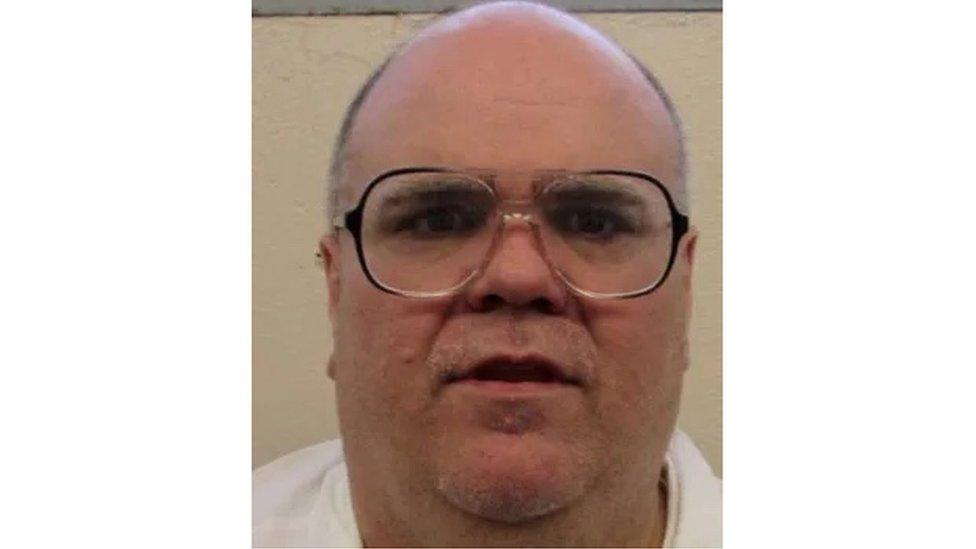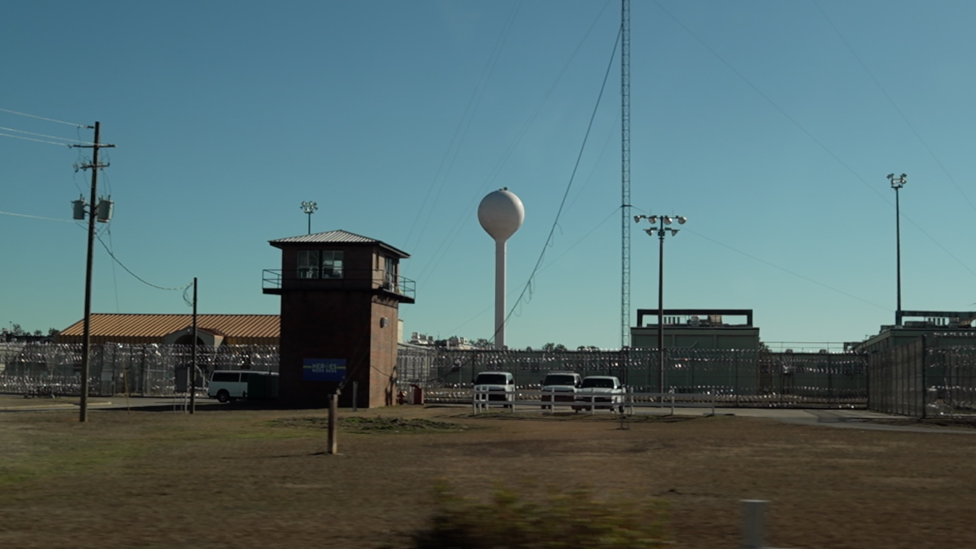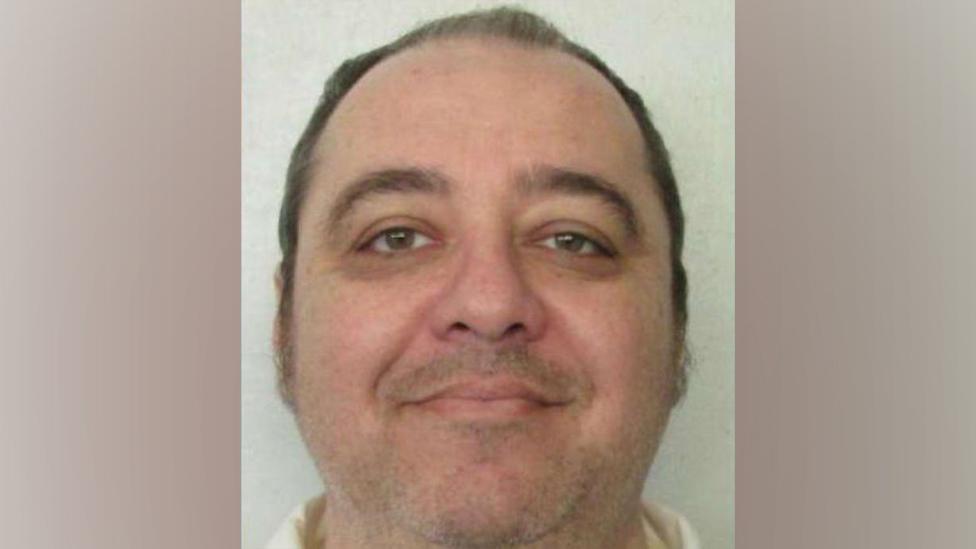Second Alabama man to be executed by nitrogen gas
- Published

The state of Alabama is seeking to execute Alan Eugene Miller, who has been on death row since 2000, with the controversial nitrogen gas methhod
The state of Alabama is seeking to execute a second inmate using nitrogen gas just weeks after becoming the first in the nation to use the controversial method.
The state's attorney general asked Alabama's Supreme Court to set an execution date for Alan Eugene Miller, who has been on death row since 2000.
He was convicted of killing three people in a workplace shooting.
The UN has condemned the nitrogen gas method as cruel.
In January, the state executed another inmate, Kenneth Eugene Smith, with nitrogen gas. According to reporters at the execution, Smith thrashed violently on the gurney before being pronounced dead 25 minutes later.
While advocates have opposed the method, the state argued it was "effective and humane" and says Miller, 59, will be executed the same way.
Miller was convicted of killing three people - Terry Jarvis, Lee Holdbrooks and Scott Yancy - in 1999 during workplace shootings in Birmingham, Alabama.
"It is once more the appropriate time for the execution of his sentence," Alabama Attorney General Steve Marshall said in a statement.
Miller survived a previous execution attempt by lethal injection in September 2022 as it was called off when it could not be completed by a midnight deadline.
Following the failed attempt, Miller filed a federal lawsuit that alleges prison staff, trying to find a vein, poked him with needles for over an hour and left him at one point hanging vertically as he lay strapped to a gurney.
In November 2022, the state agreed it would not use lethal injection in his execution but instead nitrogen gas.
Ahead of Kenneth Eugene Smith's January execution, the UN, the EU and anti-death penalty activists condemned the use of nitrogen gas for the death penalty. Smith was convicted in 1989 of murdering a preacher's wife, Elizabeth Sennett, in a killing-for-hire.
UN High Commissioner for Human Rights, Volker Turk, said he had "serious concerns this novel and untested method of suffocation by nitrogen gas may amount to torture, or cruel, inhuman or degrading treatment".
Inhaling pure nitrogen gas cuts off the oxygen supply to the brain. The procedure had never been used before in an execution, according to the Death Penalty Information Center.
Besides Alabama, only two other states - Oklahoma and Mississippi - permit execution by nitrogen gas.
Those states approved the use of nitrogen hypoxia as an alternative method of execution because the drugs used in lethal injections have become more difficult to find, contributing to a fall in the use of the death penalty nationally.
Related topics
- Published26 January 2024

- Published26 January 2024

- Published26 January 2024
